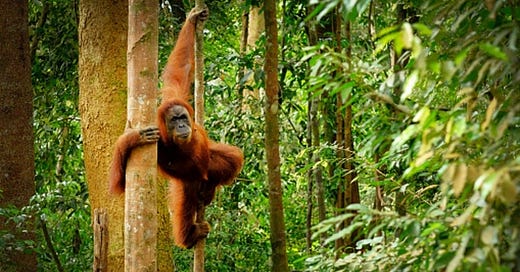Companies Pricing in Forest Fires to Make Way for Palm Oil in Indonesia
Peat swamps, primary forests, and orangutans methodically going up in flames
By: Gregory McCann
The penalties that Indonesia is levying on plantation companies illegally replacing protected primary forest amount to little more than a slap on the wrist, environmentalists say, and when they do get handed out, are usually delayed for many years so that even if they are in the millions of dollars, they are paid in small installments spanning decades, serving as a minor irritation rather than a real deterrent.
That is how companies such as PT Kallista Alam (KA) are doing business in one of the most biodiverse regions on earth. KA was handed down a US$23 million fine in 2013 for burning most of the Tripa peat swamp in the Leuser ecosystem, which spans 2.6 million hectares, almost three times the size of Yellowstone National Park in the US. Its diverse landscape includes lowland and montane rainforests, nine rivers, three lakes, and over 185,000 hectares of carbon-rich peatlands. One of the last remaining intact rainforests in all of Indonesia, it is a crucial source of clean drinking water and agricultural livelihoods for over four million people. It is also a critical habitat for critically endangered Sumatran orangutans, Sumatran tigers, and Helmeted Hornbills.
KA only began repaying its fine in small chunks this year, a decade later. Before the fires were set, it is thought that 3,000 orangutans inhabited the swamp. Today no more than 200 remain, and what little remains of their peat swamp homes continues to be cleared…



